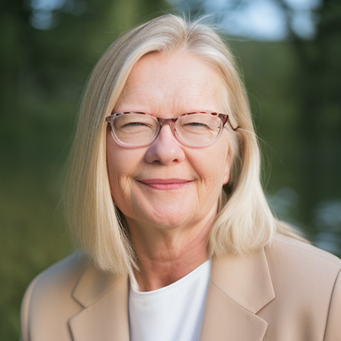
“When doing what we most love transforms us into the best possible version of ourselves and hints at even greater future possibilities, the urge to explore becomes a feverish compulsion.”
-Steven Kotler1
Leadership in higher education goes beyond operational management—it is about creating a culture that inspires every individual to unleash their full potential. Over five seasons of the IngenioUs podcast, I’ve interviewed over 100 college and university presidents, uncovering key themes that show how exceptional leaders shape environments where human experience and potential can truly flourish.
In this first article of a new blog series, I explore a foundational theme: the transformative power of leadership that prioritizes people and a human-centered culture. The stories in my latest book Ingenious Leadership reveal a powerful truth: the most impactful leaders are those who embrace authenticity, cultivate emotional intelligence, foster inclusion, and develop others to achieve their full potential.
 Embrace Your Story: Authenticity as Leadership Strength
Embrace Your Story: Authenticity as Leadership Strength
Mary Dana Hinton, President of Hollins University, exemplifies the transformative power of owning one’s narrative. Growing up in the American South, Hinton often felt marginalized. Initially, she believed she needed to conform to traditional leadership norms to succeed. However, her journey toward educational equity revealed that true leadership required her to lead from her unique perspective.
“Being from the margins is not something to apologize for—it is a strength.”
-Mary Dana Hinton
Hinton’s leadership, rooted in authenticity, inspires others to embrace their stories, regardless of societal expectations. Similarly, Christina Royal, former President of Holyoke Community College, channels her experience as a first-generation college student into a leadership style deeply attuned to student challenges. Sharing her vulnerabilities and journey allows her to connect with and inspire others.
Actionable Habit: Reflect on your personal story. How can your unique experiences shape and strengthen your leadership? Share your journey with others to foster trust and connection.
 Elevate Emotional Intelligence: The Foundation for Resilience
Elevate Emotional Intelligence: The Foundation for Resilience
Leadership comes with inevitable criticism and conflict. Helen Drinan, President Emerita of Simmons University, emphasizes the importance of regulating emotions to maintain clarity and focus. She describes building an “inner core” to prevent criticism from becoming a personal crisis, a skill essential for navigating high-pressure environments.
Patricia McGuire, President of Trinity Washington University, reframed resistance to institutional change as a natural part of progress. By managing her emotional responses and staying committed to her vision, she inspired transformative growth.
“If you don’t hear noise outside your window, you’re not doing your job.”
-Patricia McGuire
Actionable Habit: Practice self-awareness by identifying your emotional triggers. Develop techniques, such as mindfulness or journaling, to process criticism constructively and lead with confidence.
 Foster Inclusion and Belonging: The Power of Community
Foster Inclusion and Belonging: The Power of Community
Leaders like Daisy Cocco De Filippis and Pam Eddinger highlight the importance of creating environments where everyone feels valued. De Filippis’s commitment to maintaining clean, welcoming campuses is not merely aesthetic—it is a signal of respect and care for all community members.
Pam Eddinger’s leadership at Bunker Hill Community College, shaped by her immigrant identity, prioritizes representation and inclusion. Initiatives like the HOPE program for Black and brown men demonstrate her belief in fostering connections that reflect students’ lived experiences.
“Students must see themselves in the curriculum and their environment.”
-Pam Eddinger
Actionable Habit: Amplify diverse voices in your organization. Create initiatives that reflect the unique needs of your community and celebrate individual contributions.
 Develop Others: Leadership as Multiplication
Develop Others: Leadership as Multiplication
The best leaders focus not only on their success but on empowering others. Mary-Beth Cooper, President of Springfield College, exemplifies this through her “Team One” approach, where senior leaders prioritize institutional goals over departmental silos. Similarly, Paul LeBlanc challenges leaders to be judged by how many leaders they create.
Donna Carroll underscores the essence of leadership as a collective and forward-looking act, reminding us that the true measure of success lies in leaving an enduring legacy through others.
“Leadership isn’t about you—it’s about the institution.”
-Donna Carroll
Actionable Habit: Develop a growth plan for your team members. Identify their strengths, provide mentorship opportunities, and encourage them to take on new challenges.
Conclusion: Building a Culture of Potential
The stories of Mary Dana Hinton, Christina Royal, Helen Drinan, and others teach us that leadership is about unlocking human potential. Leaders create communities where everyone can thrive by embracing authenticity, cultivating emotional intelligence, fostering inclusion, and developing others.
Leadership is not about fitting a mold—it is about breaking molds and inspiring others to do the same. As you reflect on your leadership practices, ask yourself: How are you unleashing the potential of those around you?
To dive deeper into these ideas, explore Ingenious Leadership and discover how you can transform your leadership journey.
Get your copy of Ingenious Leadership: Creating Solutions to Wickes Problems in Higher Education here.
You can hear from many of the leaders cited in this blog post in the latest episode of IngenioUs, Melissa Morriss-Olson’s podcast where she converses with higher education’s most creative thinkers and doers to explore new ideas and what’s possible in our sector. Listen to this episode below.
 IngenioUs Gems: Putting Leadership into Practice
IngenioUs Gems: Putting Leadership into Practice
Throughout the Ingenious Leadership book, you will find Ingenious Gems—succinct, impactful takeaways that distill the essence of each chapter’s leadership insights. Much like rare and precious stones, these gems are designed to highlight key practices and ideas, offering you a quick reference for reflection and action. Each gem is a polished reminder of the transformative habits, practices, and mindsets to guide you toward more effective and inspired leadership.
Early Reviews for Ingenious Leadership
“Higher education is going through unprecedented change, much of it with no playbook to follow. Leadership will require imagination, courage, and fresh thinking. This book couldn’t have come along at a better time. It is very much of the moment, though the lessons collected here can inform the work of years to come and inspire those navigating the unknown seas before us.”
-Paul LeBlanc, Former President, Southern New Hampshire University and Co-Founder and Board Chair, Human Systems
“Recurring change and uncertainty create a new era of leadership in higher education. Melissa Morriss-Olson masterfully analyzes her unique and inspiring conversations with nearly a hundred leaders from many different types of institutions encountering many different challenges, who each personally share how the ever-changing landscape of higher education has transformed their leadership values, mindset, and strategies. A common set of attributes, qualities, and values emerge from her analysis which embodies the new leader for the new higher education. The book is timely and critical for higher education.”
-Stephen Lehmkuhle, Chancellor Emeritus, University of Minnesota Rochester
Ingenious Leadership is a vital contribution to our understanding of effective leadership in higher education. Drawing from real-world experiences of diverse leaders, this book offers invaluable insights into navigating the complex challenges facing our institutions today. As someone who has championed access and opportunity for underserved students, I particularly appreciate how this work emphasizes the importance of empathy, listening, and adaptability in leadership. This is an essential read for anyone committed to transforming lives through higher education.”
-Elsa Núñez, President Emerita, Eastern Connecticut State University
References
1 Kotler, S. (2014). The rise of Superman: Decoding the science of ultimate human performance. Houghton Mifflin Harcourt.


